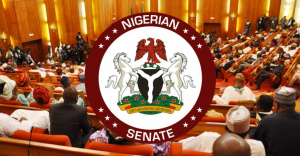
A Collaborative Push for Economic Overhaul…
In a bid to resolve disagreements and chart a unified course for the Tax Reform Bills, the Executive arm of government and the Senate convened a high-level parley in Abuja today. The dialogue, initiated by President Bola Ahmed Tinubu, aims to foster consensus and address contentious areas in the proposed legislation.
Executive and Senate Join Forces
Minister of Justice and Attorney-General of the Federation (AGF), Lateef Fagbemi (SAN), leads the Federal Government’s delegation to the National Assembly to interface with senators over the reforms. This meeting follows the President’s directive to the Attorney-General and other key Ministries, Departments, and Agencies (MDAs) to collaborate with lawmakers to dispel misconceptions and criticisms surrounding the bills.
Senate Minority Leader Abba Moro and a team of prominent senators, including Chief Whip Mohammed Tahir Monguno and others from diverse political affiliations, will represent the legislature. This marks the second interaction between the two arms of government within a week.
Deputy Senate President Barau Jibrin emphasized the importance of the meeting, stating, “The Senate remains the stabilizer of the nation, using dialogue and consensus to resolve challenges that could divide us.”
Addressing Economic and Systemic Issues
The Tax Reform Bills are part of a broader effort by the Tinubu administration to overhaul Nigeria’s tax system, reduce reliance on oil revenues, and promote fiscal stability. These reforms align with the administration’s commitment to tackling systemic challenges and supporting economic growth.
Barau noted, “The proposed reforms reflect our collective responsibility to address economic difficulties, enhance security, and stabilize our country amid global economic challenges.” He further explained that legislative action on the bills, including public hearings, will be suspended until the ongoing discussions yield a resolution.
Expert Endorsements and Public Sector Support
The reforms have garnered widespread support from tax professionals and the Organized Private Sector in Nigeria (OPSN). The Chartered Institute of Taxation of Nigeria (CITN) described the reforms as “essential for transforming the economy.”
CITN President Samuel Agbeluyi applauded the administration’s political will to enact sweeping tax changes, stating, “These reforms are critical to diversifying revenue sources, improving compliance, and fostering an enabling environment for businesses.”
The OPSN, comprising leading organizations such as the Manufacturers Association of Nigeria (MAN) and the Lagos Chamber of Commerce and Industry (LCCI), also hailed the reforms as a game-changer for Africa. Calling for swift legislative approval, OPSN emphasized that the bills would streamline tax processes and unify tax administration, paving the way for increased investment and sustainable growth.
Challenges and Path Forward
While the bills have received endorsements, they have also faced criticism and concerns from stakeholders. However, tax experts argue that such reactions are typical of major reforms. The Director General of the National Orientation Agency (NOA), Lanre Issa-Onilu, highlighted the importance of these reforms for funding public services and supporting national development.
A Transformative Vision
The Tinubu administration’s approach to tax reform has been deliberate and exhaustive, with input from diverse stakeholders. The government has demonstrated a commitment to addressing Nigeria’s economic challenges through legislative, policy, and administrative measures.
The Tax Reform Bills represent a critical step in this journey, offering the potential to transform Nigeria’s tax system, reduce economic dependence on oil, and provide a stable fiscal foundation.
As the Senate and Executive continue their dialogue, the outcome of these deliberations will shape the trajectory of the nation’s tax system and its capacity to drive economic growth and stability.
The government’s effort to achieve consensus underscores the importance of collaboration in addressing complex national issues. With support from professionals, the private sector, and policymakers, Nigeria stands poised to implement transformative reforms that could position it as a leader in tax administration on the African continent.

